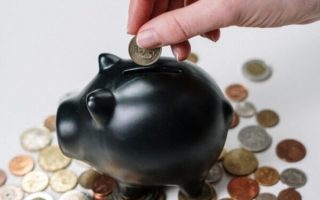Everyone wants to save money, but few people do it. Many people wait for hours in line for Black Friday but don’t bother to look in their wallets if they’ve saved anything in the past five years. Saving money is essential in order to live in a comfortable financial state. Stay away from debt if possible and learn how to save money through the advice from these best personal finance blogs.
Take Stock of How Your Money Is Spent Each Month
The single most effective way to save money is to know where every penny goes. Tracking your spending is an easy habit to start, but it can be hard to stick with because you may be surprised by how much you’re spending. But tracking doesn’t have to be painful.
You can use various apps, which enables you to see all of your spendings in one place. Store all of your transactions, including online and phone purchases, withdrawals from ATMs, and deposits from checks. Make it easy to categorize your spending, so you can easily see where your money is going. You can also set up alerts, so you can be notified when unusual expenditure occurs.
Limit Your Monthly Use of Credit Cards
Generally, you are unlikely to get into financial trouble if you limit your monthly credit card spending to £200 but you can look for a payday direct lender if you require emergency funds. This monthly limit is based on the average expenditure of credit cardholders in the UK.
The monthly limit is reset on the first of every month. This means that, on the last day of the month, you will be spending less on your credit card than you did on the first day. This limit applies to a credit card or charge card. If you carry a balance, you are limited to spending only as much as you can afford to pay back.
If you exceed your monthly limit, you will be issued a credit card bill for any overspend. The limit is reset each month, so the card company will expect you to spend less than the limit the following month.
Find Ways to Cut Unnecessary Costs
There are many ways to save money in the UK – from switching energy providers to letting your car sleep in the garage. Here are some suggestions for cutting unnecessary costs.
Switch energy providers. If you’re paying too much for your energy, it can often be worth switching to a cheaper deal. Comparing energy prices is easy.
Supermarket prices can vary depending on your location, so be sure to shop around. Free apps such as Price Scanner make it easy to find the cheapest items.
Buy secondhand. Websites such as eBay let you sell and buy new and used items.
Get a better deal on a car, home, and contents insurance. It’s worth shopping around for insurance. Compare the quotes you get from different companies and don’t accept the first policy you find.
Slash Your Food Spending
Cutting down on your grocery budget doesn’t have to mean giving up good eats, and you can save money simply by being more thoughtful about what you buy.
The first step toward cutting your food expenses is to figure out how much money you spend on groceries. To figure that out:
Create a household budget that tracks every penny you spend.
Start with your fixed expenses — your rent or mortgage, utilities, and car payments.
If you don’t have one of those yet, calculate those costs from your rent or mortgage statement, your water bill and gas bill, and your car payment.
Next, estimate how much money you spend on food. That’s trickier.
Start by tracking the food you buy each week. You’ll be surprised how fast you find purchases you didn’t realise you made.
Then, estimate how much you spend on groceries each week. If you’re buying many prepared items, like prepared salads or frozen dinners, estimate the amount and divide it by the number of times you eat it.
If you’re buying many fresh items, add up the cost of your weekly produce bill (and add in the price of soaps, cleaners, toiletries and other household goods you buy at the grocery store), then divide by the number of times you eat it.
Build Up Savings
One of the most important things you can do to improve your personal finances is to build up your savings, especially if you are still a teenager. This doesn’t mean you have to stop spending, but it does mean that you need to save more, so you can afford the expenses that will come with being an adult.
By the time you are an adult, you will have been in the job market for a few years, and should have some idea of what your salary will be and what your living expenses will be.
If you have not been in the job market for a while, you will need to do a little more research into this before you know how much you need to save up every month.
Next, you will need to see how much you can afford to save each month without eliminating everything you spend on every month. Therefore, do the calculations and see what would be the best and most comfortable amount to save.
Pay Bills on Time
Bills keep accumulating. Most people pay their bills late, but it is possible to change this.
One idea is that you can avoid late fees by paying your bills early. This is a good idea, but the problem is that many people can’t pay their bills early due to different reasons.
If you are usually paid early enough, then always pay your bills, such as rent, cable and electric bills before the due date. By doing so, you are now left with all the money you need to budget without worrying about the bills. It also reduces the chances of using your salary before paying crucial bills like water bills that may affect your life quality.
Reduce Recurring Charges
A recurring charge is a charge that recurs every month, quarter, or year. They include utility bills, insurance premiums, and mortgage payments. Reoccurring charges can be important expenses, so it’s important to try to reduce or eliminate them. For example, if you’re paying an insurance premium every month, either cancel the policy or reduce the coverage. The insurance company may try to get more money from you, but in the long run, you’ll save money.
Take careful note of any recurring charges you get from other vendors, such as credit card companies and cell phone providers. If you have several credit cards, make sure you know which card charges, which recurring fees. If you find unexpected fees, contact your card company and ask if there’s anything you can do.
Clear Your Debts
Debt is the enemy of personal finances and wealth. The more you have, the less room you have to take risks. Having debt is like living paycheck to paycheck. When you pay your bills, you have very little leftover to take care of other things, or even improve your life.
Most people have debt, in amounts ranging from a few hundred pounds to a few hundred thousand. If you have £1,000 in credit card debt, that is a £1,000 bet on the further collapse of the economy.
If you are in debt, getting rid of it is the single most important thing you can do to improve your finances. The worst part of having debts is that they accumulate interest every month or year. Therefore, if you had taken a huge debt, then you will spend many years trying to pay it without having much going on in your life. This can make your life depressing, without anything to show for it. If possible, try and clear your debts as soon as you can.






Comments